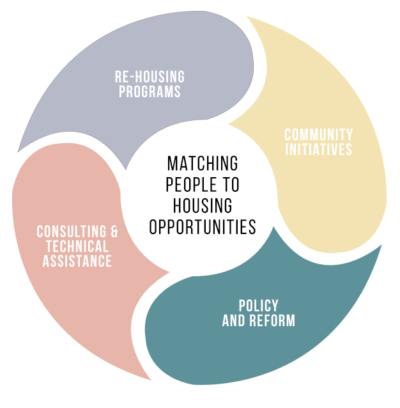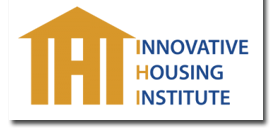
Baltimore Regional Housing Campaign
BRHC’s vision is consistent with the recent ruling of the federal court in the housing desegregation case of Thompson v. HUD, which held that the federal government has failed to provide poor families with access to housing outside of segregated, high poverty communities. This case will be an important catalyst for change in the region and can help to break down legal barriers.
Organizing Members include: Innovative Housing Institute, ACLU of Maryland, Poverty and Race Research Action Council (PRRAC), Citizens Planning and Housing Association, Inc.
In 2011, the BRHC filed a complaint with the U.S. Department of Housing and Urban Development, citing that the state housing agency of Maryland was maintaining a policy that funneled low-income housing developments into poor, predominantly black communities. Six years later, on September 20, 2017, the Maryland Board of Public Works approved $225,000 to settle a six-year-old discrimination complaint against the state’s Department of Housing and Community Development. Under a “Voluntary Compliance Agreement and Conciliation Agreement,” the State has agreed to help finance development of at least 1,500 low-income housing units across Baltimore City and Harford, Howard, Carroll, Anne Arundel, and Baltimore counties. The settlement restricts those units to communities with low crime, minimal poverty, and highly-ranked schools.
The Opportunity Collaborative
The Opportunity Collaborative (The Collaborative) was the consortium charged with developing a Regional Plan for Sustainable Development(RPSD) (link to PDF) for the Baltimore region. The RPSD is a collective effort of governments, organizations, and community partners to connect traditionally separate planning efforts and to develop new strategies to reduce regional disparities and improve the quality of life for all our citizens. In addition to the RPSD, the Collaborative developed regional plans in the areas of housing and workforce development and funded innovative and transformative efforts through a series of grants.
The work of the Opportunity Collaborative has helped to shape policy decisions at the state and local level. In April of 2016, the Opportunity Collaborative’s work was recognized with the HUD Secretary’s Award for Public-Philanthropic Partnerships.
Baltimore Regional Housing Plan
“THE GREATEST HOUSING NEED IS FOR THOSE WHO MAKE UNDER 30 PERCENT OF MEDIAN FAMILY INCOME (MFI) – EQUIVALENT TO A FAMILY OF FOUR EARNING $26,000 OR LESS. BOTH SEVERE HOUSING COST BURDEN AND STATE CALCULATED UNMET NEED SHOW AN UNMET DEMAND IN THE REGION OF JUST OVER 50,000 RENTAL HOMES AFFORDABLE TO THESE HOUSEHOLDS”
IHI was the lead consultant for the development of the Opportunity Collaborative’s Regional Housing Plan, Strong Communities, Strong Region. Strong Communities, Strong Region, was created through an effort and experience of a diverse group of housing experts, local and state government officials, non-governmental organizations and civic and religious leaders. As an expert in inclusionary zoning with grassroots experience with the most vulnerable sector of the population in the city, IHI can help provide the solutions recommended throughout the indepth report offering viable and comprehensive solutions and recommendations for Baltimore Region partners.
The Regional Housing Plan set the following goals:
- Address Unmet Housing Needs for 70,000 low-income households.
- Sustain the Region’s Diverse Communities
- Bolster Vulnerable Communities
- Boost Opportunity for People in Highly Challenged Markets
- Connect Housing Efforts to Transportation and Workforce Development
- Support Plan Implementation Through Continued Convening of the Housing Committee
“DHCD ESTIMATES A SHORTAGE OF NEARLY 14,000 ACCESSIBLE UNITS AFFORDABLE AT 30% MEDIAN FAMILY INCOME (MFI)”
Baltimore City Continuum of Care
The Continuum of Care is a collaborative body within Baltimore City that includes organizations that serve homeless persons, homeless and formerly homeless persons themselves, and other organizations and individuals that are interested in ending homelessness in within the City, and carries out responsibilities required by the HUD Continuum of Care (CoC) program. IHI is an active and contributing member of both the Housing and Resource Development Committees.
